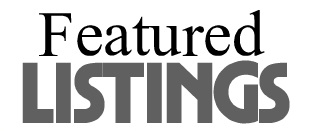It is the norm for Small businesses, startup, new ventures to struggle due to limited financial resources. There are so many efforts that can improve your business and produce results that are little or no cost. We all want results, but at what cost ? Did that $1000 investment or expense produce $10 results?
Part of my profession as a business broker involves consulting with both buyers and seller of business. I also provide consulting services to businesses outside my role as a business broker in Florida. Rarely do I experience a discussion based upon “I have too much cash flow to deal with”. Small business owner and entrepreneurs are constantly seeking ways to improve thier businesses with limited resources. Below are a list of several tactics and efforts a small business owner may take that cost little or no money and therefore the Return on Investment ( ROI) is extremely high. There are many other practices and efforts that can be utilized outside of the below short list, hopefully this list can change the line of thinking of a business owner from “I wish I could do something but I don’t have the money” to:
What Can I Do To Improve My Business With Limited Or No Money
1.Look at your company from the perspective of a customer. Can you do that?, can you pretend you are a customer trying to do business with your company. You send an inquiry via email, you place a call into your company- what happens?. We all have dealt with companies that customer service seems more like “How to effectively get a customer off the phone” instead of ” I wont let you hang up the phone until I know I have completely helped you to fulfillment” IS it a pleasant experience to do business with your business?
2. Attempt to surround yourself with more beneficial synergistic strategic partners-
As a business broker I have various strategic partners that allow me to best assist my clients. These professionals include, Attorneys, Accountants, bankers and Financial people. Not so long ago I relocated to a city 5 hours away. Among other things, I needed to develop a new “team” that I could rely on that help me help my clients. I researched banks that do a lot of SBA loans to small business, migrated thru the company website, found a point of contact that I had an interest in meeting with, sent an email, and got an email back saying “going on vacation back in 2 weeks, call me then”. I proceeded to pursue a relationship with someone that would call me back., passed over this prospective strategic partner and found someone that I feel may develop into a mutually beneficial business relationship. My clients will benefit from my valued strategic partners.
3. Use the Internet more
- post a blog- how much does that cost?
- post a tweet about a sale, a special or event- We’ve all heard/read that this can be a good idea- just do it.
- check out a site such as Fiverr.com and see if someone can do something for you for $5. Are there other sites that facilitate low cost solutions? Can you afford to make a $5 error?
- Try something you haven’t tried- a video, guest blogging, join more related forums or user groups, start a group.
4. Educate yourself– take some time out of your day to read other related blogs info on your industry or specific area of focus. Commit yourself to learn your own financials better than you presently do. Again the ROI on your time invested in this can be quite high.
5. Go to a network meeting– there are several available in most communities that are either free or cost a couple bucks. How much could you benefit from making that “right contact”.
6. Consider a Freelancer– Are there some functions/task that you currently are having performed that may be done more cost effectively thru an outside source such as a free lancer. Open your mind to it.
7. Treat all customers, prospects, employees, vendors with respect and integrity– The ROI on this no cost effort is immense
Dont ever stop trying something different. I have utilized the above items in my various business ventures throughout the years and still utilize them on a regular basis. If you are running a business, buying a business, or growing a business these low and no cost business practices will result in very good return on investment and usually all it takes to get these returns is to consider them and just do them.










